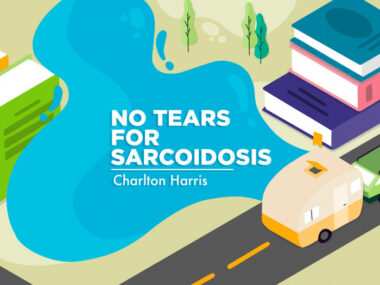Pandemic Brought ‘Healthcare Disruptions,’ Sarcoidosis Patients Say
Written by |

People with sarcoidosis in three of the hardest hit English-speaking cities during the initial stages of the COVID-19 pandemic — London, New Orleans, and New York — reported considerable disruptions in healthcare, a survey study has found.
Patients also had concerns for their own survival and believed that they were less likely to receive life-saving treatments. Although difficulties in receiving appropriate healthcare and the burdens associated with sarcoidosis already existed, these issues intensified during the pandemic.
The survey identified weaknesses in the U.K. and U.S. healthcare systems and could be “an agent of sensitization and strategy for other serious health conditions,” the researchers noted.
The study, “Sarcoidosis Illuminations on Living During COVID-19: Patient Experiences of Diagnosis, Management, and Survival Before and During the Pandemic,” was published in the Journal of Patient Experience.
Sarcoidosis is a rare inflammatory disorder that can affect several organs in the body. At times, general symptoms such as fever, extreme tiredness and arthritis (joint inflammation) can make it difficult to distinguish active sarcoidosis from other conditions. Immunosuppressive therapies, infections, and lack of access to care are known to negatively affect sarcoidosis patients’ health.
COVID-19 symptoms include fever, cough, and shortness of breath, but several organ systems can also be affected. The chronic form of COVID-19 could be caused by immune activation and damage to organ tissues, as in sarcoidosis.
The challenges faced by patients and doctors, communicated through online support groups, inspired a team of researchers in the U.S. and U.K. to conduct a survey study on how the COVID-19 pandemic impacted sarcoidosis patients.
Participants were accepted to the project, which was announced through patient organizations, on a first-come basis. A total of 28 patients were ultimately recruited — 12 from London, nine from New Orleans, and seven from New York. Most had severe sarcoidosis that affected several organ systems and three tested positive for COVID at the start of the study.
Sharing COVID-19, sarcoidosis concerns
The research team was made up of patient leaders, physicians, nurses, and therapists. The researchers conducted face-to-face interviews in April/May 2020 for 90 to 120 minutes and talked about several COVID-19-related topics with discussions revolving around two main questions. These were: “Thinking back to just before COVID-19 emerged, and then thinking about now, how has COVID-19 impacted your life as a person living with sarcoidosis?” and “Thinking back to prior to COVID-19 and then now, how has your health-related to sarcoidosis changed since COVID-19 emergence?” The survey also identified three themes.
The first theme, “sarcoidosis survival ecology,” reflected topics such as “interconnections” and “personal evolution and emergence.”
Participants in New Orleans declared their spirituality and faith, unlike those in London and New York. All agreed that knowledge gained from living with sarcoidosis prepared them for coping with social distancing and embracing behaviors to protect against infection.
“I started shielding in February. I bought my first mask in January. I was in hospital between operations. But it was just my personal previous life experience … I saw it coming,” a patient in London said.
Some reported having to share the seriousness of their health status with others when they would have preferred to not.
“My son is 15 and he’s being homeschooled again. I did like the fact that he would get up in the morning and go to school every day that would give me time if things really did hurt … as you know, we don’t fake being sick, we fake being well … so it bothers me that when I’m in a flare he can’t be sheltered as much as he normally is,” a New York participant said.
As part of the second theme, “COVID-19—sarcoidosis interactions and similarities,” participants discussed concerns about similarities between COVID-19 and sarcoidosis symptoms, the viral triggering of inflammatory diseases, and the disruption on all aspects of sarcoidosis care.
The overlap in COVID-19/sarcoidosis symptoms confused clinicians and made diagnoses difficult, they said. Also, many doctors lacked experience in sarcoidosis and were unable to adequately answer complicated questions, such as whether to continue sarcoidosis therapies.
“But from a sarcoidosis point of view, we find this all the time (lack of disease knowledge) when we see doctors that don’t understand sarcoid,” a U.K. participant said.
Patients also reported that the pandemic disrupted all aspects of sarcoidosis care, which caused them to be concerned about their survival. Some experienced a shortage in specific medications, such as hydroxychloroquine, due to reduced supplies, as well as insurance obstructions in the U.S.
In the last theme, “environmental/societal external needs and influences,” participants discussed disparities in healthcare and societal respect, including race and disability issues. All the groups’ members were concerned that having sarcoidosis affected their chances of survival not only because of the underlining disease biology, but also because they felt less likely to receive life-saving therapies.
“In terms of protection and protecting others — historically black lives are less valued in society and health wise … now with this pandemic …,” a patient in New York said.
“If I get COVID-19 and have to go to [intensive therapy unit] … they’re going to say ‘she’s not gonna survive, so she’s not going to get an [intensive therapy unit] (ICU) bed,'” a participant in the U.K. responded.
Although a global query into sarcoidosis will be conducted in the future, the researchers concluded that, “there is perceived disparity in pre- and intra-pandemic of equity in healthcare access and in chance for survival. The pre- and intra-pandemic expressed needs of sarcoidosis patients may provide similar agency for other serious health conditions.”






